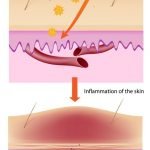Microbiome’s Role in Dealing with Cancer
Node Smith, ND
Researchers with the Snyder Institute for Chronic Diseases at the Cumming School of Medicine (CSM) have discovered which gut bacteria help our immune system battle cancerous tumors and how they do it. The discovery may provide a new understanding of why immunotherapy, a treatment for cancer that helps amplify the body’s immune response, works in some cases, but not others. The findings, published in Science, show combining immunotherapy with specific microbial therapy boosts the ability of the immune system to recognize and attack cancer cells in some melanoma, bladder and colorectal cancers.
Discovery may provide a new understanding of why immunotherapy works in some cases, but not others
Dr. Kathy McCoy, PhD, is a leading expert on the body’s relationship with the microbiome. She and her team are focused on harnessing the power of the microbiome to improve health and treat diseases. McCoy says to harness and direct that power scientists need to better understand the role bacteria play in regulating the immune system.
“Recent studies have provided strong evidence that gut microbiota can positively affect anti-tumour immunity and improve the effectiveness of immunotherapy in treating certain cancers, yet, how the bacteria were able to do this remained elusive, ” says McCoy, director of the International Microbiome Centre at the University of Calgary and principal investigator on the study. “We’ve been able to build on that work by showing how certain bacteria enhance the ability of T-cells, the body’s immunity soldiers that attack and destroy cancerous cells.”
First Things first
First, the researchers identified bacterial species that were associated with colorectal cancer tumors when treated with immunotherapy. Working with germ-free mice, they then introduced these specific bacteria along with immune checkpoint blockade, a type of cancer immunotherapy. Research revealed that specific bacteria were essential to the immunotherapy working. The tumors shrank, drastically. For those subjects that did not receive the beneficial bacteria, the immunotherapy had no effect.
Findings
“We found that these bacteria produce a small molecule, called inosine,” says Dr. Lukas Mager, MD, PhD, senior postdoctoral researcher in the McCoy lab and first author on the study. “Inosine interacts directly with T-cells and together with immunotherapy, it improves the effectiveness of that treatment, in some cases destroying all the colorectal cancer cells.”
The researchers then validated the findings in both bladder cancer and melanoma. The next step in this work will be to study the finding in humans. The three beneficial bacteria associated with the tumors in mice have also been found in cancers in humans.
“Identifying how microbes improve immunotherapy is crucial to designing therapies with anti-cancer properties, which may include microbials,” says McCoy. “The microbiome is an amazing collection of billions of bacteria that live within and around us everyday. We are in the early stage of fully understanding how we can use this new knowledge to improve efficacy and safety of anti-cancer therapy and improve cancer patient survival and well-being.”
1. Lukas F. Mager, Regula Burkhard, Nicola Pett, Noah C. A. Cooke, Kirsty Brown, Hena Ramay, Seungil Paik, John Stagg, Ryan A. Groves, Marco Gallo, Ian A. Lewis, Markus B. Geuking, Kathy D. McCoy. Microbiome-derived inosine modulates response to checkpoint inhibitor immunotherapy. Science, 2020; eabc3421 DOI: 10.1126/science.abc3421

Node Smith, ND, is a 2017 graduate of NUNM, is licensed in Oregon, and is also working towards licensure in Saskatchewan, Canada, where he lives. Node is associate editor and continuing education director for NDNR. His mission is serving relationships that support the process of transformation, which ultimately leads to healthier people, businesses, and communities. His primary therapeutic tools include counseling, homeopathy, diet and the use of cold water combined with exercise. Node has worked intimately with many groups and organizations within the naturopathic profession, and helped found the non-profit, Association for Naturopathic Revitalization (ANR), which works to promote and facilitate experiential education in Vitalism.









